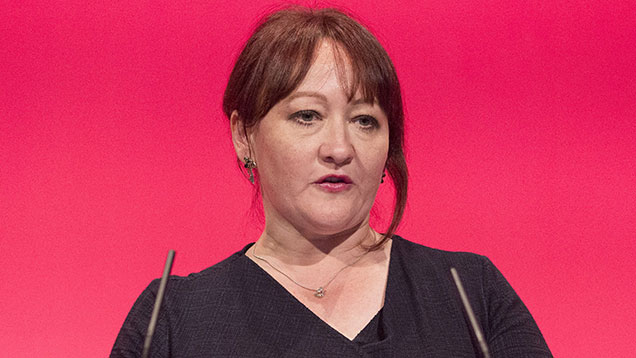Defra ‘failing’ on food and farming strategy
 © Ray Tang/Rex Shutterstock
© Ray Tang/Rex Shutterstock The government’s approach to farming is failing – and its long-term strategy risks being too narrow, shadow Defra secretary Kerry McCarthy has claimed.
Expected to be published next year, the 25-year strategy for food and farming is being drawn up by government ministers and industry representatives.
But Ms McCarthy said the plan risked being a missed opportunity for the government to set out a long-term vision for the food and farming sector.
See also: Food strategy will boost farm output – Defra
“I have spoken to many people with a keen interest in this, and lots of expertise – including the Soil Association – who don’t feel they’ve been able to make a contribution,” she said.
“Their fear is that the plan will have far too narrow a focus,” Ms McCarthy told listeners at the association’s soil symposium dinner on Thursday (6 October).
“It’s a real missed opportunity to set out a future vision for food and farming.”
Ms McCarthy added: “What we have on the table so far seems more of a business plan – a plan for producing more, selling more, exporting more… But that is all.”
“It would be hugely short-sighted not to address soil degradation and soil erosion in our food and farming strategy” Kerry McCarthy
Acknowledging it was important to look at ways in which the sector could be made more profitable, Ms McCarthy said there was “so much more” that the plan could and should be covering.
It was absurd for Defra to separate its food and farming plan from its 25-year plan for nature and the natural environment, which was also in the pipeline, she said.
It was wrong to ignore farmers’ role as custodians of much of the countryside – looking at food and farming purely from an economic, money-making viewpoint and nothing more.
The key challenges for the next 25 years were to make food and farming more sustainable and – given global pressures – ensure long-term food security, said Ms McCarthy.
It was important to tackle diet-related ill-health, address low-pay, reduce greenhouse gas emissions from agriculture and reverse the “shocking” decline in biodiversity and wildlife.
“Ever greater intensification” meant it was also important to promote the best possible animal welfare standards as an issue in its own right, rather than “as an afterthought”.
Soil was one of the most precious resources and absolutely vital to food security and the environment, said Ms McCarthy.
She added: “It would be hugely short-sighted not to address soil degradation and soil erosion in our food and farming strategy.”
Research has shown that poor soil management was one reason why the UK had reached a yield plateau for staple crops, she claimed.
“Enhancing the health of our soils is surely critical to meeting the challenges of the next 25 years, and it ought to be in the food and farming plan.”
Ms McCarthy’s speech came the day after Defra minister George Eustice said resilience would be a key part of the government’s food and farming strategy.
Stakeholders had attended a meeting hosted by Defra in July – and the government had held a number of regional stakeholder events since then.
The food and farming strategy would be published “probably in the New Year,” Mr Eustice told the NFU tenant farmers’ conference on Wednesday (4 November).
“There will be quite a lot on resilience and managing volatility in the industry and mitigating risk,” he told NFU conference delegates at Newbury Racecourse.
The strategy would also look at ways technology could be harnessed for precision farming, to improve competitiveness, reduce cost and improve yields.
It would examine how export markets could help farmers add value and protect themselves against peaks and troughs in the the marketplace.
“We are working with the industry so they can help us identify the markets which are most useful to them,” said Mr Eustice.
The strategy would address ways of attracting new entrants to the industry – including those with skills and training, and how negative perceptions about agriculture could be changed.
